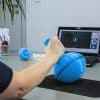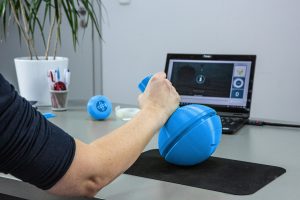
Occupational Therapy Cognitive Assessments: Tools and Techniques for Effective Evaluation
Treatment GuidelinesDiscover essential occupational therapy cognitive assessments to enhance patient care. Learn about tools, techniques, and best practices in OT evaluations.
Occupational therapy cognitive assessments are an often-underestimated tool in an OT’s toolkit. Functional cognitive skills are pivotal in how well patients can adapt to the changes that injuries and major hospitalizations can incur. Understanding a patient’s cognitive function can help us therapists meet them where they are and guide our interventions to best support them through the recovery process.
The type of assessment you pick matters more than you might think. An assessment that doesn’t quite meet what you want to measure can lead to results that don’t truly represent your patient. In this article, we’ll explore some common OT cognitive assessments used in outpatient and inpatient settings. We’ll also discuss how to select and apply these different assessments to guide patient interventions effectively.
In this article, we’ll explore a few key occupational therapy cognitive assessments, including standardized and functional assessments, like the MoCA and EFPT. We’ll also discuss how to select and apply these different assessments to guide interventions effectively.
Understanding Cognitive Assessments in Occupational Therapy
As occupational therapists, we serve a much broader role than solely rehabilitating ADL and IADL independence in a biomechanical sense. We look at each of our patients holistically, including assessing their cognition and how this factor limits or supports their daily independence and safety. Intact cognitive skills are necessary to navigate new environments or situations1, and understanding our patient’s cognitive skillsets helps us guide our treatments to not only train the body but also to exercise the brain.
Occupational therapy cognitive assessments help establish a baseline performance of processing, short-term and long-term memory, safety awareness, judgment, and problem-solving skills2. Other skills involving cognition include attention, insight, and overall executive functioning2.
Cognitive deficits impact the ability to form new habits and routines, participate in productive life roles, and live independently1,2. Cognitive assessments can determine if cognitive deficits are present and how deeply they impact a person’s ability to be safe, independent, and adapt to their environment.
Often, different cognitive assessments are developed for specific populations, the most common being those with dementia. Neurological conditions, patients with traumatic brain injuries, and patients with developmental disorders are other populations whose cognition can be heavily impacted by their injury3,4. Cognitive assessments in these populations can establish a baseline, track cognitive changes, and provide insight into how much capacity a patient has to learn and apply new skills (even skills like using a walker for a short time).
Commonly Used Cognitive Assessment Tools In OT
Occupational therapists are able to use cognitive assessments with any population, though the results are only accurate if the best-fit assessment is used. Factors such as physical barriers, language barriers, aphasia, and even behavioral states can skew results enough not to give an accurate, comprehensive cognitive picture. Next, we’ll review some of the most essential cognitive assessments in occupational therapy.
Standardized Assessments
The Mini Mental State Examination (MMSE)
This assessment is a screening tool used to determine the presence of cognitive impairment in older adults.5 Created in 1975, it is a standardized and quick-to-administer test. It’s an 11-question test that measures five areas of cognitive function, including orientation, registration, attention and calculation, recall, and language. A score of 23 or below (out of 30) indicates cognitive impairment.5
I prefer to use this test in the hospital setting, as this often helps me see if my patient’s cognition is impaired versus my patient experiencing hospital-induced delirium.
The Montreal Cognitive Assessment (MoCA)
This standardized assessment requires the practitioner to complete the training and certificate program to administer, interpret, and score results.6 There is a full and abbreviated version, with the abbreviated version being most appropriate for those with a lower education level. The MoCA is a more detailed assessment than the MMSE and includes a more comprehensive cognitive picture.
The Saint Louis University Mental Status (SLUMS) Exam
The SLUMS is considered a cognitive screening for dementia-type cognitive dysfunction.7 It’s more comprehensive than most screenings and covers areas that translate to ADLs and IADLs, such as calculations, recall, comprehension, and working memory. Currently, it’s only validated to be used in adults over 60 years old who do not have conditions that may directly cause cognitive dysfunction, such as TBI, developmental disabilities, schizophrenia/schizoaffective disorder, etc.7 This screening is one I use very frequently in skilled nursing and inpatient rehab settings.
The Loewenstein Occupational Therapy Cognitive Assessment (LOTCA)
The LOTCA assesses cognition by scoring how completely and how well a patient accomplishes a particular task or instruction related to ADLs and IADLs.8 This is a great assessment for those with intellectual disabilities, stroke, and TBI, and can be administered over a few different sessions if necessary. Ultimately, higher scores with the LOTCA mean a lesser cognitive impairment.8
The LOTCA-II version accommodates language difficulties and separates the previous Perceptual area of testing into three separate areas (visual and spatial perception and motor praxis). Depending on the therapist and the patient, the LOTCA can take up to 90 minutes to administer. It gives a detailed and comprehensive look at specific cognitive areas that translate directly to plans of care and interventions.8

Functional Assessments
The Cognitive Assessment of Minnesota
The CAM is a screening tool that assesses a hierarchy of functional cognitive skills, building from basic to higher-order abstract thinking.9 This test is designed for adults who have experienced a stroke or TBI (Rancho Los Amigos Scale levels IV through VII), was developed by occupational therapists, and is based on functional activities. Some weaknesses of this assessment are that it is inappropriate for psychological diagnoses, and that the test materials must be supplied each time it’s administered, which can incur some cost.9
The Executive Function Performance Test (EFPT)
The EFPT is a shorter functional assessment that focuses on executive functioning skills.10,11 As the patient completes the four tasks involved in this assessment, their performance can indicate their capacity for independent functioning and even the amount of assistance needed for task completion. The tasks involve making oatmeal, paying bills, taking medications, and using a telephone. While this test may be a shorter functional test, respectively, these tasks can take up a significant amount of time in certain settings, and you should allow about an hour for completion.10,11
Selecting the Right Assessment
Selecting the right assessment is key to building an accurate cognitive profile for your patients. The environment and even time constraints can play a role in which assessment you choose. For example, the LOTCA is a detailed, time-intensive assessment, whereas the SLUMS usually takes about 15 minutes to administer. I use the SLUMS frequently in acute care and inpatient rehab settings. You also want to consider other factors that may limit the accessibility of the cognitive assessment.
For example, patients of mine who have cervical-level spinal cord injuries with bilateral arm paralysis aren’t a good fit to administer a cognitive assessment that has a heavy writing or functional component in a post-acute setting (like the EFPT). In this case, I would choose an assessment that has more verbal components or find an adaptive version.
Understanding how to administer, score, and interpret results is also important. Some assessments, like the MoCA, require training and official certification courses to access them. Others may be free, but it’s important that you are familiar with the assessment procedures included, before you administer the assessment.
Integrating Assessment Results into Intervention Planning
Assessment results in cognitive tests aren’t often clear-cut; you have to consider aspects of your patient’s occupational profile and other factors. What I’ve run into frequently is that even though I’ll use an appropriate assessment for my patient, the global score doesn’t align with what I see during their daily functional performance. In those cases, I interpret these results carefully, and it may only be one aspect of the assessment that led to the low score.
I specify my goals based on what I see in my assessment. If I see that memory and recall are most affected, I’ll create specific interventions focusing on this skill. If I see that my patient has dysfunction in working memory and sequencing, I’ll shift my interventions to focus on applying new knowledge to practical situations. Breaking cognitive skills down is a way to keep things measurable and trackable.
I always clinically correlate my findings to give a fuller picture of how the patient’s cognition works for or against their current performance. I then incorporate those findings into my care plans and goal development. Frequent repetition of the same assessment isn’t recommended due to possible learning effects. However, outcome tracking in physical therapy is a great way to show patients their progress while preventing learning effects.
Resources and Further Reading
AOTA is the authority on practice guidelines in our field. They have specific guidelines for occupational therapy cognitive assessments in various populations, as well as resources, papers, and journals to reference and familiarize yourself with different aspects of cognition if needed.
Often, you can find cognition-specific webinars through professional organizations or hospital systems, or look for cognition-based conference sessions to attend. The MoCA certification course is well worth the investment if you plan on working with a population that typically experiences cognitive dysfunction, and every so often, you can find free trainings offered by universities or other organizations for other cognitive screenings.
Bringing It All Together: Enhancing OT Practice Through Cognitive Assessments
Selecting appropriate cognitive assessments and understanding how to interpret and clinically correlate your findings is an important skill for an OT. So many of our patients may experience varying degrees of cognitive dysfunction that may lead to more major hospitalizations if not addressed through intervention or adaptation. Keep up to date with OT best practices for cognitive interventions, and check out some other assessment tools to help your patients achieve even better outcomes.
Mary Vieregge, OTR/L is an occupational therapist and freelance writer based in Eastern North Carolina. She has experience in a range of settings, from inpatient rehabilitation to long-term care, with a concentration in neurorehabilitation and spinal cord injury populations. Mary is passionate about patient education and innovative practices, is constantly searching for the latest and greatest to add to her clinical toolbox.






